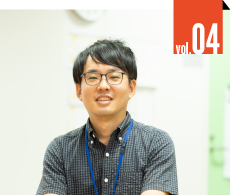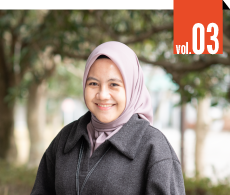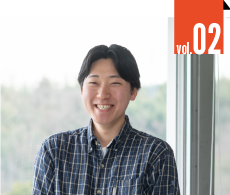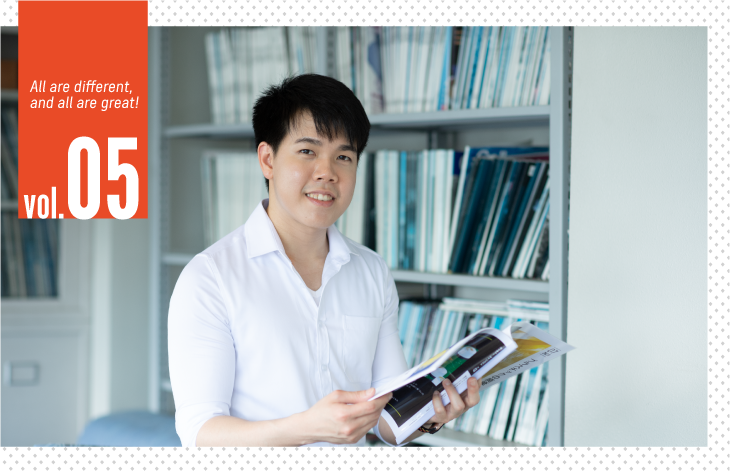
![]()
Wong Hao Jie
Biosciences
Gene Regulation Laboratory
Grade: 2nd year of PhD.
Place of birth: Malaysia, Selangor
Undergraduate Research: Marine Science
Research at Graduate School: Gene Regulation in Zebrafish
Before joining NAIST and my current research
I majored in Marine Science during my undergraduate studies at the University Sabah Malaysia, Malaysia. I then furthered my postgraduate study with a Master of Philosophy in Marine Biotechnology at the Institute of Ocean and Earth Sciences, University of Malaya. During my post-graduate study, I also officially became a member of Malaysian Mensa, the high IQ Society with an IQ score of 156. The University of Malaya has an academic exchange agreement with NAIST and every year they send students to the pre-screening program. I was selected for the 2-week pre-screening program in January 2019, I was in the hope that it might lead to an opportunity to further my PhD at NAIST. After visiting NAIST, I decided to further my PhD here, so I applied for the Japanese Government Scholarship Program of the Ministry of Education, Culture, Sports, Science and Technology for the 5-year program of research student period and doctoral program. I secured my scholarship without a hitch, but my trip to Japan was postponed due to corona pandemic. Fortunately, I successfully arrived in Japan and joined the Bessho Laboratory as a research student in the fall of 2020. Before entering NAIST, I did an intensive Japanese language program at Osaka University for 6 months and joined Bessho Laboratory soon after I finished the program. After spending one year as a research student, I officially enrolled in the NAIST PhD program in 2022.
I developed my interest in gene expression regulation in my master degree and expanded my interests into my current research. During animal development, different cell types work coordinately to develop a working system. In our laboratory, we are trying to elucidate the mechanisms of how the regulation of the genes in different cell-types aids the developmental process. The Bessho Lab is currently the only laboratory in the School of Biological Science that uses zebrafish as a model organism, and I am using this organism to study the interaction between neurons and glial cells in terms of axonal bundling.
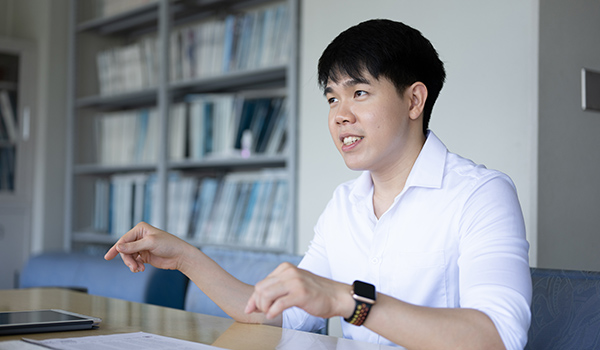
Communication in the laboratory
Currently, there are three students from Malaysia, one from Bangladesh, and one from China in our laboratory. I am a Malaysian-born Chinese, but I speak three languages: Chinese as my mother tongue, Malay as my official country language, and English is used as my main language in university education. Currently, I communicate with students from Malaysia in Malay, students from Bangladesh in English, students from China in Chinese, and students from Japan in Japanese, which I am still working on.
When I was an undergraduate student in Malaysia, I chose Japanese as my foreign language and began my Japanese language study. The reason why I chose Japanese as my foreign language is because rumor says that Japanese is not difficult to learn. As a Malaysian-born Chinese, I found that I have an advantage in learning Japanese because I have always been familiar with Kanji characters. I can understand most of what is written in Japanese by relying on Kanji characters now.
In my laboratory, I do not have any communication problems at all with the professor and assistant professors as we use English in most of our conversations. I sometimes communicate with Japanese students in English, but I would use Japanese when we face communication problems. Due to the limitation of my Japanese language proficiency, it is sometimes difficult to fully deliver my thoughts in Japanese.

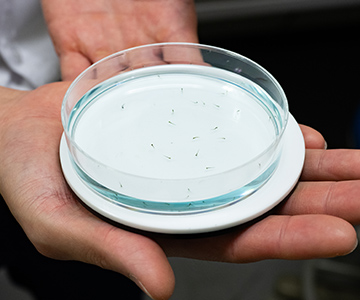
The language used in laboratory meetings and internal seminars organized by the School of Biological Science is mainly in Japanese, which is often difficult for me to fully understand. When there are invited speakers from overseas, the seminars are more easily understandable and enjoyable than attending seminars in Japanese. I believed I would be able to learn more if there were more seminars offered in English. Since Japanese is the official language at NAIST, I also have many opportunities to speak and use Japanese in my daily life.
In the laboratory, I could deliver my speech casually to Professor Bessho and other assistant professors without any hierarchy barriers. This allows us to be able to share and express our thoughts and ideas freely and get equivalent feedbacks from each other. The professors in my laboratory treat students equally as colleagues and always encourage students to share their opinions and ideas and we work together as a team.
When there are communication problems or conflicts in research opinions between students and professors, it is always a concern that the student’s grades and reputations might be affected if the conflicts were reported. In my opinion, the school should encourage the reports of these incidents by offering a safety net to ensure that no unfair treatment or punishment will be subjected to students when they take their first step to report. It is also important to note that these conflicts shall be solved not only by the communities of faculty members but the equivalent involvement of students for any decisions to be fairly executed.
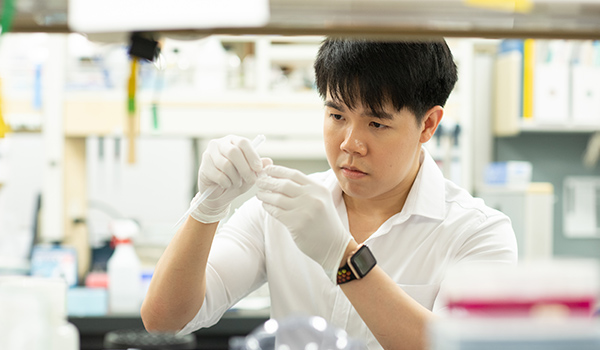
Related to research environment
NAIST provides a relatively good research environment with multiple common-use equipment available for research, including Sanger sequencing machines and confocal microscopes. The common-use equipment allows me to work efficiently and I am able to obtain my research data in a shorter time. In NAIST, students are allowed to operate confocal microscopes by themselves, which is normally not allowed in Malaysian universities. On the other hand, all the faculty members in the School of Biological Sciences and especially the staffs from the Centre for International Students and Scholars are very kind and courteous. I could easily access the faculty members and professors when required and they are very helpful to assist me all the time. In addition, the administrative procedures in NAIST can be achieved very effectively without hassle or the need for multiple-level approval.
NAIST is located in a small town and it lacks accessibility to any place or accommodation. It generally takes 20-30 minutes by walking to the nearest supermarket or train station. I usually access the nearby store or train station by walking because the bus fare is relatively expensive for a short distance. Besides, walking is also good exercise. It is not an enjoyable process during the summer season, but is it very pleasant and refreshing during spring and fall with the Sakura and maple trees along the streets, and I enjoy the different seasons in Japan.
In my time off from research, I have visited many prefectures in Japan including Hokkaido, Okinawa, Kyoto, Miyazaki, Mie, Nagano, Hyogo, and Tokyo since I came to Japan. On weekends, I usually go figure skating in Osaka with friends to take my mind off the research, and I go to the gym on weekdays to strengthen my physique. I am committed to these hobbies and I even got myself a pair of figure skating shoes to put myself into it. As a member of a high IQ society, figure skating satisfies my desire to obtain new skills and it is fun to learn new techniques every single time.
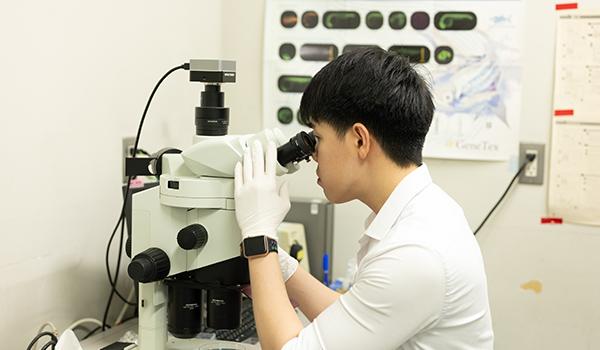
I do not feel any discrimination or inequity based on gender, ethnicity, or nationality in this lab. In contrast, Malaysia is a nation of 70% Malay and indigenous, 20% Chinese, and 10% Indian, but the policy adopts a selection system based on ethnic quota* for university entrance, and it makes me feel that although we (Chinese Malaysian and Indian Malaysian) are all Malaysians, yet we are being treated unfairly.
I still have a very vivid memory of when the president announced the "Declaration of Co-Creative Community" in the year 2022, during my PhD enrollment ceremony. Even now I can still see the Declaration at the entrance to each of the research buildings. The President declared that he has an agenda to push forward and achieve equality, especially for different racial groups, LGBTIQA+ communities, and other minorities. I was very impressed with NAIST's commitment to this declaration, as these efforts will never be promoted politically to support the minorities in my own country.
*The system of preferentially allocating admission quotas at national universities to bumiputras. Bumiputra means "child of the land" (Malay residents and indigenous people) in Malay language.
(August 2023)







